A large portion of the remaining UK car manufacturers focuses on making luxury vehicles and performance cars. Old names like British Layland and Rover have faded into the past, leaving the likes of Aston Martin and Jaguar Land Rover at the forefront of the British motor trade of today. A large majority of British car manufacturers focus on making unique, low-volume sports cars, which is why it's unlikely that you'll have heard of many manufacturers in this list and why so many are absent from our personal car leasing and business car leasing offerings.
Related Article: What Are The Flagship Models For Each Manufacturer?

AC Cars
The name "AC" is derived from one of their production models at the time, the Autocarrier. Released in 1903 under the name Weller Bros Ltd, AC was known for producing vehicles that were particularly suited for shopkeepers. It is reported that companies such as Boots, Selfridges, and Associated Newspapers all had Autocarriers in their fleets, with Goodyear Tyre Co owning around 70 of these vehicles in total.
Today, AC Cars specializes in authentic rebuilt Shelby Cobra-style models, although production is limited. Recently, AC Cars acquired the sports car manufacturer Zenos, so we may see entirely new offerings in the years to come.

Arash
Arash are a sports car manufacturer that mainly promotes their unique models at large motoring shows, you don't see any on the roads at all really - the seemingly Ferrari / McLaren inspired models have a hefty price tag for a brand so unheard of - the entry-level AF8 Cassini starts from £168,000 and sports a massive 7.0-litre V8 with 550 horsepower, so it's not like it's short on pace.

Ariel
In terms of workforce, Ariel is one of the smallest car manufacturers in the UK and as all of their models are hand-built and made to order there isn't many produced each year, along with the fact that they offer a high niche product, it's impressive how much popularity the company has despite the size of their market potentially going against them.
Thanks to an engine agreement with Honda, Ariel has some fruity engines available for tinkering on their non-traditional, scaffolding-like vehicles. Their most known model is the Ariel Atom, a track toy that weighs next to nothing has no roof nor creature comforts, and is best compared to an extremely powerful go-kart, given how it uses a Honda Civic Type-R engine. They also have the Nomad, a purpose-built off-roader with a perspex windshield being available as an optional extra to stop some of the mud from getting all over you.
While it's unlikely that you'll ever own one of Ariel's models yourself (unless you're a car enthusiast), you can often experience a ride in an Ariel Atom at many of the UK's supercar track day experience events.
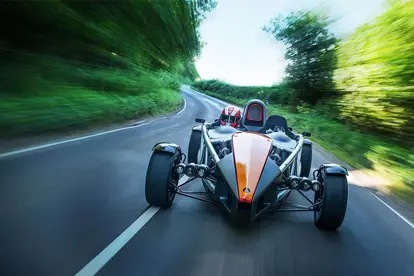

Aston Martin
Manufacturer of choice for 007' himself, Aston Martin produces luxurious grand touring cars and has a rich heritage that dates back to before the First World War. Often sharing parts with Mercedes-AMG, Aston is still a brand that makes you proud to be British. Of all the cars within the grand touring classification, Aston Martin usually presents themselves as the more driver-oriented choice as opposed to an outright luxury.

Atlanta Motors
Specialising in early 1930's vintage design language, Atlanta models are very exclusive to own as each car is hand-built from the ground up. The company started out right before the World War, which caused production to end after producing a mere 22 cars. The modern-day Atlanta Motors re-create their original model and bring it up to modern-day standards.

BAC (Briggs Automotive Company)
BAC only makes one car - the Mono. It's a hardcore, lightweight performance car which looks as though it belongs solely on a racetrack, but the model is actually road legal. Each model is hand-built and made to order, so much so, that their customers are invited down to BAC headquarters to have their car seat and steering wheel moulded to their body. Don't expect the Mono to be cheap - the starting price is around £124,255.

Bentley
Whilst they are German-owned, Bentley has always been based in Britain. Their headquarters are in Crewe and the company has recently celebrated its Centenary - that's 100 years of producing high-end cars. Much like most high-end car manufacturers, Bentley doesn't have a large range to choose from however their models cater to different needs and are built with extremely high-quality materials, consisting of the Bentayga, Mulsanne, Flying Spur & Continental. Bentley actually went into liquidation during the great depression and was acquired by a company called British Central Equitable Trust, which, unbeknownst to W.O Bentley himself, was actually a front for Rolls-Royce.
Pictured: Bentley Continental GT
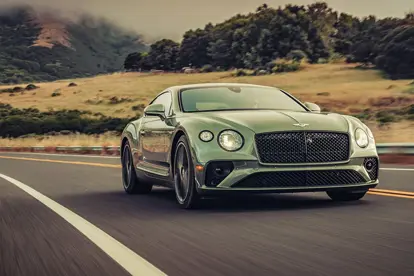

Bristol Cars
Bristol has a very rich history, the entrepreneur (Sir George White Bt) behind Bristol was responsible for the creation of the Bristol Tram system back in the late 1800s. In 1908, he set up a factory with the intention of producing commercial vehicles, which also allowed him to introduce motor taxis to Bristol, before setting up another business dedicated to Aeroplanes (Bristol Aeroplane Company) which grew significantly by the time both World Wars were over. Trouble is, after the wars, there were 70,000 employees which now needed to be maintained, so the Aeroplane company began manufacturing motor cars built to as high-a-standard which the planes were built. In the current day, Bristol has announced a new model to celebrate their 70th anniversary - the Bullet - which uses a 4.8-litre naturally aspirated V8 made by BMW.
Update: In 2020, the company entered liquidation and the rights have been newly registered by Bristol Manufacturing Limited.

Bowler Offroad
Bowler started off creating rally cars and eventually grew into creating aftermarket parts. While they mainly focus on specialist vehicles used for off-roading or rally competitions, the one car you may have seen on The Grand Tour or Forza Motorsport series is the Bowler EXR. Bowler also modifies old Land Rover Defenders and renames them under the guise of the Bowler Bulldog.

Caterham
For over 60 years, Caterham has created a DIY experience for would-be sports car enthusiasts. With a company motto of "Simplify, then add lightness" Caterham has created a range of extremely lightweight open wheelbase cars with engines ranging from 125bhp to 310 bhp. These cars typically weigh around 500kg, which is drastically lighter than a Lotus - so you can only imagine how blisteringly fast 310 bhp would feel, especially when you're more exposed to the elements, given how they don't have fixed roofs. At least you get a windshield as standard, unlike an Ariel. Anyway, the catch with Caterham is that you can order your car completely un-assembled, so you can have the joy of putting everything together - a bit like LEGO! Speaking of which, you can actually buy a LEGO Caterham.
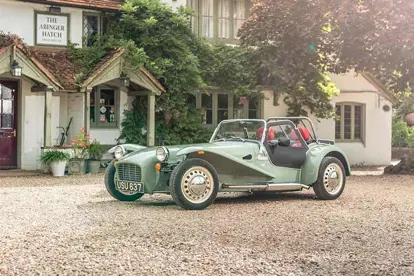

David Brown Automotive
Most known for remastering classic Mini Coopers, David Brown Automotive also produces a vintage-inspired Speedback GT for the modern classic enthusiast - it even has a deployable picnic seat in the boot! That's something you'd expect from a Rolls-Royce Cullinan, but not a much smaller coupe. Like most independent car companies, David Brown isn't an overly large company so each model is handcrafted and takes 8,000 hours to build by skilled craftsmen, technicians, and mechanics.

Eagle
Eagle spend their time reviving "the world's most beautiful car" - the Jaguar E-Type. Post-transformation at Eagle, the Jaguar E-Type is re-branded to the Eagle Speedster and it's essentially what the E-Type would've been built to by modern-day standards - stronger braking capabilities, better handling, and reliability improvements - basically all the things that have come a long way since the 60's that will keep you on the road and out of the nearby hedge. You may remember seeing an old episode of Top Gear, where Jeremy Clarkson declared the Speedster his 'Car of the decade', this was a big moment for Eagle, as their order numbers surged in a short space of time - an overwhelming amount for such a small company that produces only hand-built cars.

Elemental Cars
Based in Hampshire, Elemental produce the Rp1 sports car, which is essentially a road-legal track toy. John Begley, the man behind Elemental, wanted to create a car that was made for track use but could also be road legal to enable owners to travel to different racetracks like Le Mans or the Nurburgring without having to tow a trailer all that way. It's also a two-seater, so a friend can come along! The Rp1 uses a 2.3-litre Ford Ecoboost engine (the same engine used in the Mustang & Focus RS) which has been configured to 320 bhp.
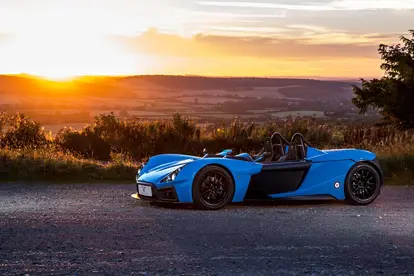
Gibbs
Gibbs, AKA Gibbs Sports Amphibians, is a company founded by Alan Gibbs after he relocated to the UK from New Zealand in 1999. Gibbs developed the first-ever road-legal, high-speed amphibian, an automobile capable of ‘driving’ on water and land, called the Aquada, in September 2003. Unfortunately, the Aquada Gibbs was only a limited production concept and is no longer being made. However, since then, the Aquada has had two successors, the Gibbs Humdinga and the Gibbs Quadski - both of which are not available in the UK.

Ginetta
Ginetta specialises in race-ready track cars and even have their own racing school. They have an entry-level G40 Junior model which costs around £35,000 which is ideal if you've got the money and want to start learning how to race, you'll also be able to enter into the Ginetta Racing Championships which is often seen as a good way to get a leg-up into a career in motor-sport. The company has just passed its 60th anniversary since it was founded in 1958 and now has three models in their range.
Grinnall
The Grinnall Specialist Cars Ltd. is a car and motorcycle maker founded by Mark Grinnall, producing three-wheeler cars based on the iconic Triumph cars from the 70s. The company developed six models in total, the best known cars being the Scorpion III, a reverse trike designed in 1991. Although no longer in production, you could bid for one in an auction. After doing some research, we found one that was sold for a surprisingly small price of £6,160.

Gardner Douglas Sports Cars
Based in Lincolnshire, Gardner Douglas hand-build classically inspired sports cars. The company was only established in 1990 but has a range spanning five different models. As many of their cars use a design language based on the 1960s, the cars aren't as aerodynamically efficient as modern-day cars, though that isn't really the point when you order a car of that nature, their customers want these cars to be representative of timeless supercars like the Ford GT40, Ferrari 330 TRI/LM or Shelby AC Cobra.

GBS
GBS offers the same proposition to customers that Caterham do - a choice between building the car for themselves or being built at the factory. The difference between the two manufacturers mainly being that GBS cars have a considerably lower price point and have only been going since 2007.

Jaguar Land Rover
JLR is actually owned by an Indian manufacturing company named Tata Motors but the base of operations for JLR is still within the UK. Jaguar Land Rover produces a wide range of cars and also has a special vehicle operations division which specialises in cars for the royal family and British government.
Pictured: Jaguar F-Type
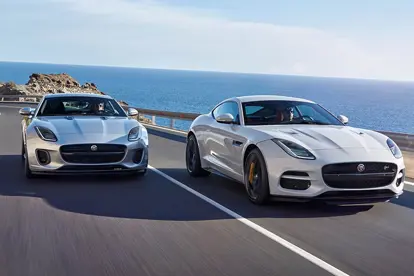
Keating
Debuting in 2006, Keating produce supercars in Bolton. They currently have four cars since their launch, with only one, the Bolt, being roadworthy (only in the US). Speaking of, the Bolt is said to be able to go from 0-60mph in an unbelievable 2 seconds. Some find this claim hard to believe, such as AutoCar, who claim that the Bolt is a whopping £750,000. That’s the same as buying around 17 Tesla Model 3s!

Lister
Built in Cambridge, Lister mainly produce highly tuned Jaguar models like the F-Type, though they also have a small range of their own cars like the Knobbly or the Costin. Lister has very recently announced the production of "the fastest, most powerful and most luxurious production Lister ever made" - it's the Lister LFT-666 sporting a 'devilish' 666 bhp from its 5-litre V8.

London EV Company
Set to replace the entire taxi fleet of the future, the LEVC has manufactured an all-electric, next-generation taxi with a total range of 377 miles, helping cab drivers save roughly £100 per week in fuel costs. This means drivers won't be charged if they enter any of the low emission zones throughout London. Given how many miles taxi drivers have to cover, 377 miles range may not justify the cost savings in terms of time spent charging, but actually, a full charge from one of the many fast-chargers which Transport for London are committed to installing, it'll only take 30 minutes to fully recharge.

Lotus
Lotus has a rich history in Motorsport and has had heavy involvement in Formula One throughout the lifetime of the brand. Lotus is obsessed with weight reduction, they've used the same philosophy since Colin Chapman's famously coined the phrase "Simplify, then add lightness". Lotus cars are efficiently designed to use as little quantity of parts as necessary for a car's creation and the next challenge on their horizon is the creation of an electric hypercar named the Evija.

McLaren
Using their racing expertise to manufacture cutting edge performance cars, McLaren still follows the footsteps of their founder's passion for motor-sport by becoming the only racing team to have achieved the 'Triple Crown' which refers to being the victor of three famous sporting events - Le Mans, Indie 500 and an F1 championship. McLaren has been in the press plenty of times over the past decade, though for many different reasons - they've had recent partnerships with LEGO and Microsoft's Forza Motorsport video game series, as well as features on The Grand Tour, Top Gear, and much more. They're always creating new and exciting models, to the point where the hype around the company never manages to die down. McLaren is still based in Woking but has opened a new advanced manufacturing park in 2017 which focuses on the build of carbon fibre chassis and other composites.
MEV ltd
MEV Ltd (Mills Extreme Vehicles) is a kit design and manufacturing company founded in 2003. They currently build the Exocet, which made its public debut in 2010, it uses donor parts from the Mazda MX5 and an enhanced version called the MX150R can participate in some UK races! MEV ltd has also produced various other trikes, such as the Missile, Sonic7, and the Tilting Trike, the first model designed by MEV. This strange little trike was a single-seater with the front end tilted into the corner. Although funky, it was never offered commercially.

MG
After falling off the radar for a short period of time, MG is back in full swing with a new range of models, including a brand new all-electric SUV, the MG ZS. The MG brand has existed for an awfully long time, the company was founded in 1924 named after Morris Garages, which was then abbreviated to M.G Car Company in 1930. If you still remember the name British Leyland, MG was eventually owned by them but mainly stuck to producing sportier variants of BL group models like the Austin Metro, though they still made their famous MGB, which has achieved classic car status in the current day.

MINI
British-made but German-owned, the MINI brand was birthed from the popular Austin/Morris Mini models. In 1969 MINI became its own independent manufacturer and was then purchased by BMW in 1994 when BMW acquired Rover (the post-British Leyland group). MINI has followed the same footsteps as Porsche, producing all of their new models following the same design language of their original models. MINI had an excellent bit of PR when the cult classic film The Italian Job was released, featuring three of the original Mini cars in red, white, and blue. The film was incredibly well received and was eventually remade in 2003 starring three of the refreshed model at the time.
Pictured: Mini Cooper 60 Years Edition
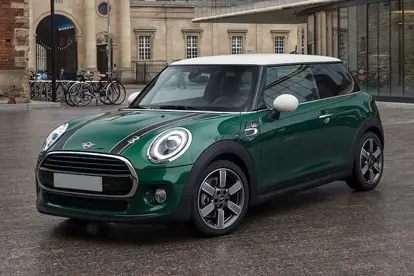

Morgan
Morgan has been going since 1910 when the founder H.F.S Morgan decided to make a car for personal use. A year after this, the car then went into production thus giving birth to one of the oldest British car manufacturer brands to date. All cars are handcrafted, which is why Morgan only produces around 800 - 900 cars a year. One of their models is very unique - the aptly named Morgan 3 Wheeler is perhaps one of the most luxurious vehicles of its kind and weighs a mere 525kg. Other Morgan models look quite similar but vary in levels of luxury and horsepower.

Metrocab
Black cab manufacturer Metrocab is now in their second generation of design, looking to create an electric taxi with the addition of a range extender (much like the BMW i3). They were the first electric-powered black cab authorised to operate within London, and, despite the range extender being a 1-litre petrol engine, the car is capable of entering zero-emission zones without penalty.

Noble
Currently Noble only makes one car and that's the M600 hypercar. It's one of the few cars capable of reaching speeds above 200 mph - the M600 can go up to around 225 mph and go from 0 - 62 in 3.7 seconds. The company its-self hasn't been around for a very long time, they were founded in Leeds, 1999 by Lee Noble - the same guy who designed some of the Ultima models.
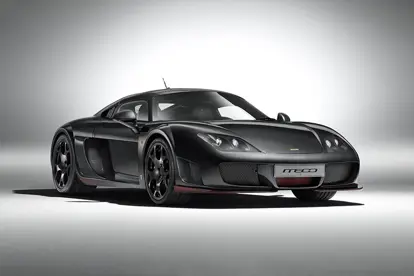

Radical
Established in 1997, Radical set out to manufacture cars designed for racetrack use but knew that price point is a huge limiting factor in their market, so the complete package had to be "thrilling, dramatic, huge fun to drive and excellent value for money." Radical models are extremely lightweight and aerodynamic, enabling owners to set blisteringly fast lap-times should their ability allow them.
Riversimple
According to Riversimple, they don't sell cars, they offer "mobility as a service, not cars as a product" much like Volvo has recently started. Essentially, you pay a monthly fee to have access to a Riversimple car. Looking past the quirky design of the Rasa, you won't find petrol or diesel engine under the bonnet. Instead, you'll find a Hydrogen fuel cell-powered unit - a bit like the Hyundai Nexo - though much smaller and not as luxurious.
Related Article: What is a Hydrogen Car?

Rolls-Royce
You'll struggle to find a production car more luxurious than any model within the Rolls-Royce range. Established in 1884, they're one of the longest-standing car manufacturers in the UK and have a rich history to accompany them. Alongside cars, Rolls' also make aircraft engines and were the manufacturer behind the famous Merlin engine used during World War 2. The cars themselves are incredibly quiet and smooth to drive - so smooth in fact, that you can balance a coin directly on top of the engine, start the car and the coin won't fall over! While Rolls Royce has mostly been British-owned, right now they are owned by BMW group.
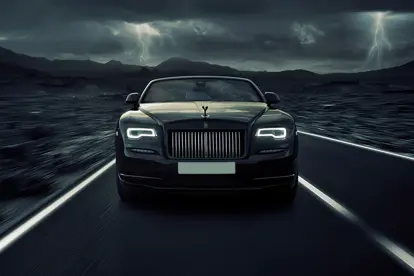
Ronart
Known for their unique designs, Ronart Cars is a British sports car manufacturer that designs cars that are both road legal and for track day use. The company was founded in 1984 and is still in business. Ronart had only two models, the W152 and the Lightning V8, which despite its popularity, having received 24 orders following its launch, ceased production in 2003 following a change of business. The W152, however, continued manufacture in 2016.

TVR
TVR is a little bit like Lotus, they focus only on sports cars with powerful engines and hardly any weight. TVR's models have always looked ahead of their time but the manufacturer dropped off the radar for a while and have finally come back with their first brand new model since 2006 - the Griffith. Classic TVR models have a cult following and are well sought after.
Trident sports cars
Specialising in Gran Touring cars, Trident creates completely bespoke cars for their customers - much like Rolls Royce. They are styled after classic sports cars with long swooping bonnets. The way in which Trident differs from most sports cars of its kind is that they use a V8 diesel engine with some very efficient credentials, Trident calls it the "world's fastest and most fuel-efficient diesel sports car". The engine its-self has 430 bhp (or 660 if you go for the performance package), a 0 - 60 time of 3.7 seconds, an average mpg of 50 when cruising at 70 mph, and an estimated fuel range of 1,500 miles.

Ultima
Ultima is a world-record smashing performance car manufacturer. Most of their records are based around acceleration times, but it's refreshing that Ultima goes for these records in a standard production car which is entirely road legal - rather than stripping out a production model, tuning it to an inch of its life, and then attempting the records. As for the styling, Ultima bases its design language on old-style Le Man's race cars - low, flat, aerodynamic bodywork and a huge spoiler.

Vauxhall
Vauxhall is actually owned by the French Groupe PSA (Peugeot / Citroen) however they're very much a British brand. Their sister company Opel manufacture similar models for other areas of Europe - they're based in Germany but sell to Africa, Asia, and South America. Australia, however, also has some of the same vehicles badged under the name Holden. Vauxhall is one of the oldest car manufacturers in the UK, they were founded in 1857 but didn't start making cars until 1903 as they were mainly ironworks. During World War 2, Vauxhall's factory in Luton was commissioned to work on the Churchill tank during the blitz, eventually producing roughly 5,000 tanks and 50 times as many cargo lorries. After the war, Vauxhall went back to making passenger cars and was competing with the likes of Ford and Morris. It was only a few years ago when Vauxhall changed owners to Groupe PSA, before the sale they were owned by General Motors until 2017.
Pictured: Vauxhall Insignia Sports Tourer
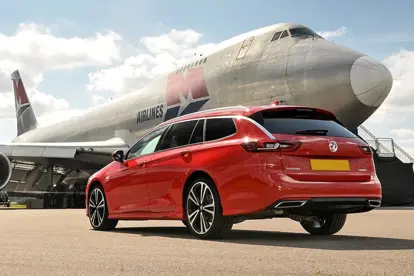

Zenos
Zenos was founded after spotting a gap in the market for an affordable sports car that would sit just below the price point of a Lotus. They've only been going since 2012 but went into administration in 2017 (now owned by AC Cars). Production is soon set to move over to South Africa, but all the R&D is still going to be done here in the UK. The engines used in their E10 range come from Ford - there's the 2.0-litre EcoBoost engine seen in many of Ford's ST models as well as the even more powerful 2.3-litre Focus RS engine.
Related Articles:
- Which manufacturers do the Volkswagen Group own?
- Directory of Car Manufacturers
- History of the UK Vehicle Registration Plate
- History of UK Car Magazines
- Why Don't European Cars Sell in America?
Editor’s Note: This post was originally published on 9 September 2019 and has been updated for freshness, accuracy, and comprehensiveness.
